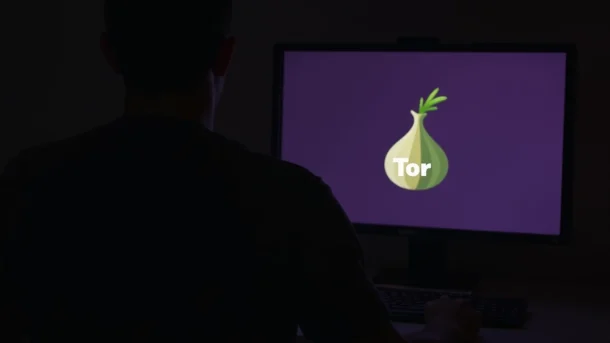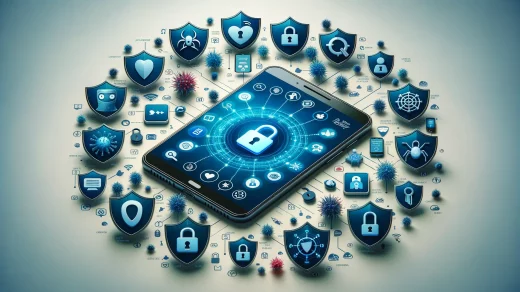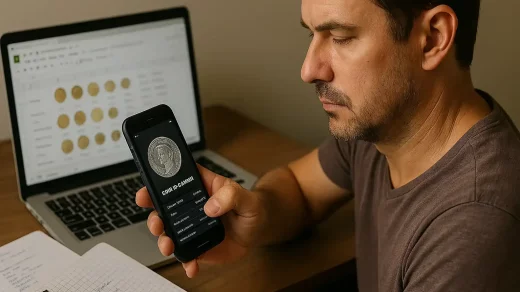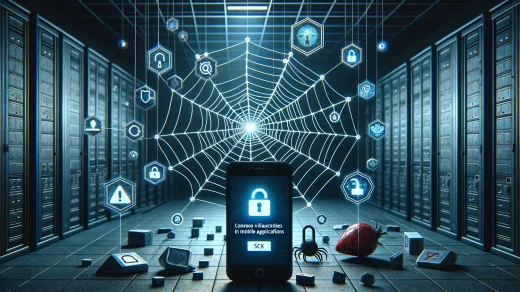The dark web is a hidden corner of the internet that operates outside the reach of traditional search engines like Google or Bing. It is a place where anonymity reigns supreme, and users can access content and services without leaving a trace. But with great power comes great danger – the dark web also serves as a breeding ground for illegal activities such as drug trafficking, human trafficking, weapons sales, and more.
What Is the Dark Web?
The dark web is a collection of websites that are not indexed by search engines and require special software to access. It operates on top of the internet’s surface layer – what we typically think of when browsing online – but uses encryption and anonymizing tools like Tor (The Onion Router) to hide users’ identities and locations.
Tor was originally developed by the United States Naval Research Laboratory for the US Navy to protect government communications from eavesdropping. It works by bouncing internet traffic through a network of volunteer-run relays around the world, making it difficult to trace back to its source. As a result, anyone can use Tor to access dark web sites without revealing their true IP address or location.
How to Access the Dark Web
To access the dark web, you’ll need to download and install Tor Browser from the official website (https://www.torproject.org/). Once installed, open the browser and it will automatically connect to the Tor network. You can then type in .onion addresses of dark web sites into the address bar to visit them.
It’s important to note that using the dark web is not illegal in itself, but accessing certain content or participating in specific activities may be against the law depending on your location and local regulations. Always use caution and consider the risks before exploring this hidden part of the internet.
What Happens on the Dark Web
The dark web is a place where people can engage in all sorts of activities with a high degree of anonymity, from buying and selling illegal goods to communicating with like-minded individuals without fear of being tracked. Some key activities that take place on the dark web include:
1. Buying drugs: The sale of illicit substances like marijuana, cocaine, heroin, and prescription drugs is rampant on the dark web. Sites like Silk Road (now defunct) once allowed users to buy and sell drugs anonymously using cryptocurrencies.
2. Hacking services: For a price, you can hire skilled hackers on the dark web to gain unauthorized access to computer systems, steal data, or launch cyber attacks against targets of your choice. This can be used for both criminal purposes and legitimate penetration testing by businesses.
3. Sensitive information: The personal details of millions of people have been leaked onto the dark web through data breaches at companies like Equifax, Yahoo, and others. Cybercriminals buy this information to use in identity theft schemes or sell it on to other criminals.
4. Extreme content: Some sites on the dark web host graphic and disturbing material that would be illegal to distribute openly, such as child exploitation imagery or violent snuff videos. Accessing such content is a serious crime.
5. Anonymity for activism: The dark web also serves as an invaluable tool for activists in oppressive regimes who need to communicate and organize without fear of reprisal from the authorities. It allows people to share information freely while protecting their identities.
The Risks of Exploring the Dark Web
While the dark web has some legitimate uses, it is a dangerous place where the risks far outweigh the rewards for most users. Some key dangers include:
1. Malware and phishing: Many sites on the dark web are run by criminals who distribute malware to infect visitors’ devices or trick them into revealing personal information through phishing attacks.
2. No recourse: If you have a problem with a dark web vendor, like receiving faulty goods or having your payment not honored, there’s no way to complain or seek redress since the entire system operates outside of the law.
3. Legal jeopardy: Participating in certain activities on the dark web, even as just a casual observer, could potentially lead to legal trouble if you’re caught accessing illegal content or engaging with criminals online.
4. Technical vulnerabilities: The anonymity tools that power the dark web, while effective at hiding your identity, can also introduce technical vulnerabilities and reduce your overall level of security compared to using mainstream browsers.
5. Social stigma: Even if your activities on the dark web are completely legal, being caught accessing these hidden sites could still damage your reputation or lead to unwarranted suspicion from friends, family, or even employers.

Popular questions and misunderstanding about the dark web?
1. What is the difference between the deep web and the dark web?
The deep web refers to any part of the internet that is not indexed by search engines due to technical restrictions or access controls, such as content behind a paywall or on private networks. The dark web, which is a subset of the deep web, is specifically used for hidden illegal activities and requires special tools like Tor to access.
2. Is using Tor Browser safe?
Tor Browser provides robust anonymity when browsing the dark web, but it is not foolproof. While it hides your IP address from websites you visit, it may still be possible for skilled attackers to identify you through other means like analyzing your network traffic patterns or exploiting browser vulnerabilities. Always use caution and trust no one on the dark web.
3. Can law enforcement access the dark web?
Yes, while the dark web is designed to provide anonymity for users, it is not completely immune to law enforcement surveillance. Law enforcement agencies around the world have dedicated teams that monitor and investigate dark web activities using advanced technical means. High-profile cases like the takedown of Silk Road demonstrate their capabilities in this area.
4. How can I tell if my personal information has been leaked onto the dark web?
If you suspect your personal data may have been compromised, start by checking whether it was included in any major reported data breaches using online tools like “Have I Been Pwned?” (https://haveibeenpwned.com/). You should also monitor your credit report regularly for signs of identity theft and consider signing up for a monitoring service if you’re at high risk.
5. Is accessing the dark web illegal?
The act of simply accessing the dark web itself is not illegal in most jurisdictions, as it is merely an anonymizing tool like any other. However, engaging in certain activities on the dark web such as buying drugs, viewing extreme content, or hiring hackers to attack others would be illegal and could lead to serious criminal charges if you’re caught. Always err on the side of caution.
The dark web is a fascinating but also deeply unsettling corner of the internet that exists outside the bounds of law and society’s normal norms. It serves as both an invaluable tool for activists and journalists seeking to communicate freely in oppressive environments, and a haven for criminals engaging in all sorts of illegal activities. While it can be tempting to explore this hidden world out of sheer curiosity, the risks – from malware infections and phishing attacks to potential legal consequences – far outweigh any benefits for most users.





